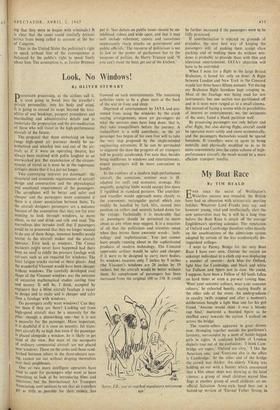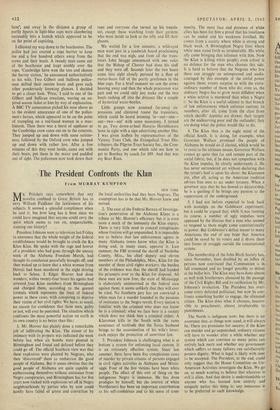QUOODLE SPURLING ting out. In the lean years before they
could afford a car, they would find themselves regularly washed up after a competition in Manchester or Liverpool, dependent on hitch-hiking or milk- trains to get them back behind the counter by eight o'clock, sleeping in coach stations or on railway benches, with the cumbersome polythene washbag containing the lady's dress Which is the precious emblem of the ballroom-dancing couple. Nowadays they try, though it isn't easy, to keep at least one or two nights a week for the home; Thursday, early closing day, is reserved for lessons, practice, rehearsals, hair-dos, laundry; and, since they are lucky enough to be their own masters, holidays always coincide with a dance festival, at Butlin's in Yorkshire or some other resort. `No, we haven't any children,' she said, and her husband, coming back from the bar with two glasses of niilk, added that really it wouldn't be feasible. They had been dancing together for fourteen years, she said.
I asked whether they had ever been tempted to take a rest. 'We gave it up. yes, once,' said her husband, 'but not for long. We did the decorating -decorated the whole house—did up the garden -then there was nothing to do, except go for walks. After three months we had to go back.' They reminisced like happy smokers who have tested and proved their moral strength before returning to par. Neither of them could divulge how or why they had taken up dancing in the first place. Most couples seemed to find this a hard question, even those who were nearer the start of their careers, like Barry and his partner Christine (in lemon with mauve satin ribbons). Christine, who is still at school, was sent to ballroom classes,when she was twelve, later, abandoned dancing for a year to take 'CY







































 Previous page
Previous page